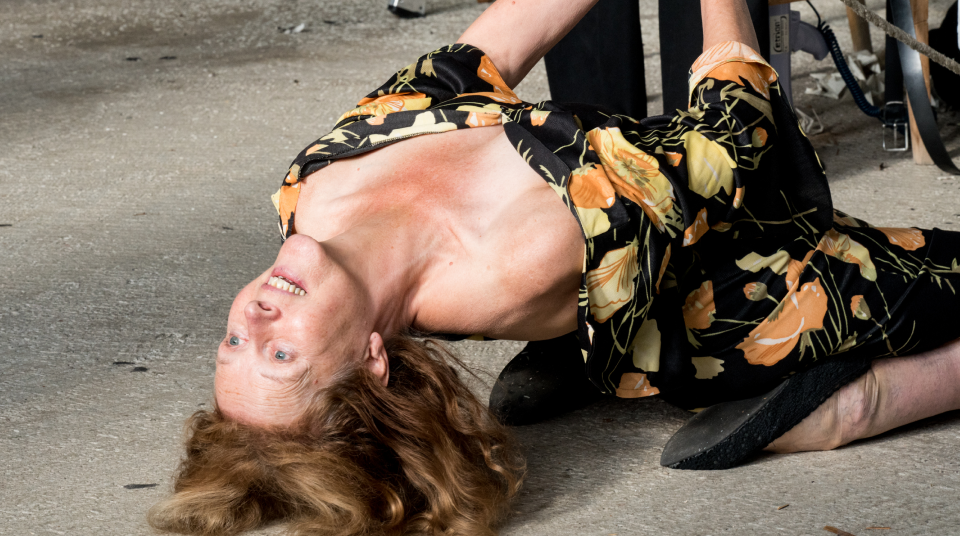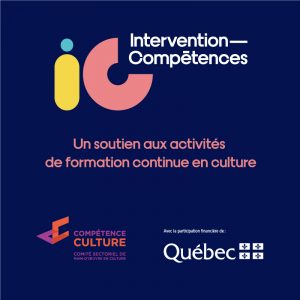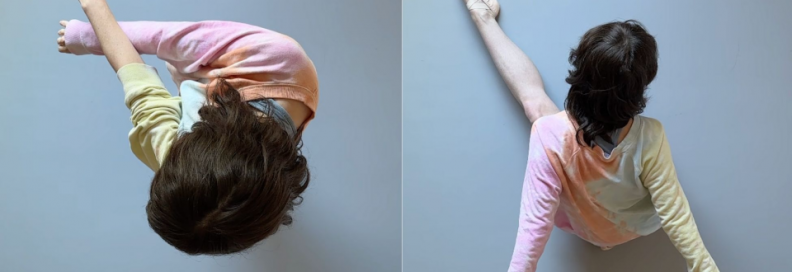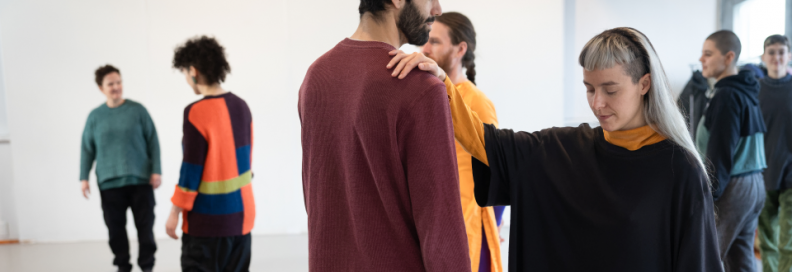Professional workshop
Jacqueline Van de Geer – Becoming
01 ⇾ Dec. 04 2025 (Monday – Thursday)
09:30 to 12:30
Weekly rate:$80
Drop-in:$28
Every day
Teaching Language: Frenglish
Questions can be asked in:
French, English
This workshop is accessible to individuals who require mask-wearing. Mask-wearing may be requested of everyone for the entire duration of the workshop.
Categories
#Creative process #Interdisciplinary #Somatic
#Creative process #Interdisciplinary #Somatic

© Jurgen Fritz
Objective
Can old age bear witness to beauty? What would it look like, and how would we experience it, if every stage of life, especially old age, could serve as a model? My workshop invites participants to explore this theme in a playful and performative way. We will use instant improvisation, authentic movement, and automatic writing to create imaginary worlds in which to grow old.
We will reflect on our expectations about aging and work with stories about grandparents. We will also explore imagining old age through role play, observing the signs of aging on our bodies and faces, and working with personal and collective memories.
We will discuss, share, and creatively reflect together, inspired by our personal and collective memories. I enjoy working with diverse groups such as teenagers, students, seniors, women, and queer people. If the group wishes, we may propose a short performance.
We will reflect on our expectations about aging and work with stories about grandparents. We will also explore imagining old age through role play, observing the signs of aging on our bodies and faces, and working with personal and collective memories.
We will discuss, share, and creatively reflect together, inspired by our personal and collective memories. I enjoy working with diverse groups such as teenagers, students, seniors, women, and queer people. If the group wishes, we may propose a short performance.
Content
We’ll share stories, reflections, and short performances. All ages are welcome, as well as diverse groups such as adolescents, students, seniors, women, and queer individuals.
Each session, we check in with each other, and a soft warm-up will follow, through automatic writing and authentic movement. From there, we will explore through improvisation the possibility of developing performance material.
After a break, we work solo or in groups to prepare a presentation for the group and discuss what we have been working on to close the session.
Each session, we check in with each other, and a soft warm-up will follow, through automatic writing and authentic movement. From there, we will explore through improvisation the possibility of developing performance material.
After a break, we work solo or in groups to prepare a presentation for the group and discuss what we have been working on to close the session.
Workshop Rhythm
~ Adaptable to the group’s needs
Accessibility Features
~ Exercices are adaptable
~ Physical contact between participants
~ Sub-groups exercices
~ Wearing masks on request
Biography
Originally from the Netherlands, Jacqueline van de Geer crossed the Atlantic Ocean in 2005 to live and work in Montreal. She completed a Bachelor’s in Visual Art and a Bachelor’s in Performance Art in the Netherlands.
Her artistic practice draws inspiration from universal themes such as heritage, family, democracy, warring and the politics of exclusion. History often is closer to our present world than we realize, and it is interesting to her to research and reveal those connections between the past and the present that are uncovered and somewhat hidden.
She merges a variety of skills: movement, monologue, object manipulation, improvisation, performance, video, collages, photography, automatic writing, and audience participation.
It is important to her to surprise herself in her process and to share this exciting feeling of ‘the un- expected’ with her participants.
Creating intimacy, garnering trust and at times revealing the unsettling are critical to her performance practice.
Her artistic practice draws inspiration from universal themes such as heritage, family, democracy, warring and the politics of exclusion. History often is closer to our present world than we realize, and it is interesting to her to research and reveal those connections between the past and the present that are uncovered and somewhat hidden.
She merges a variety of skills: movement, monologue, object manipulation, improvisation, performance, video, collages, photography, automatic writing, and audience participation.
It is important to her to surprise herself in her process and to share this exciting feeling of ‘the un- expected’ with her participants.
Creating intimacy, garnering trust and at times revealing the unsettling are critical to her performance practice.
Partners
This workshop is supported by the Conseil de la formation continue arts et culture de Montréal (CFC) in collaboration with Studio 303. The CFC’s continuing education activities are supported by the Intervention-Compétences program, thanks to the financial participation of the Quebec government.



